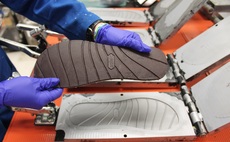
Equis, Partners Group bet on Japanese solar
Japan's rapid embrace of renewable energy in the wake of the 2011 Fukushima nuclear disaster has alerted PE investors. In the last 12 months, Macquarie Capital and local engineering firm Maeda Corp. launched a joint venture that will target infrastructure and renewable energy projects, while Goldman Sachs said it plans to invest up to JPY50 billion ($487 million) in the sector over the next five years.
Nevertheless, the solar space is seen as underpenetrated by foreign PE investors given the scale of the expected build-out and the reliability of the regulatory regime. David Russell, CEO and partner of Equis Funds Group, puts this down to a failure to address the peculiarities of the Japanese market, such as the challenges involved in securing land leases and local project financing.
"You must have local management teams on the ground," he says. "There are so many day-to-day issues you need to address with the development of solar generation facilities. There are stakeholders such as the government and regulators and to interface efficiently with them you need a team that can talk to them. An active management team is also important in making banks confident in you."
This week energy and infrastructure specialist Equis teamed up with Partners Group to lead a $250 million equity investment in a Japanese solar platform. Babson Capital, LGsuper and Qantas Superannuation are among the co-investors.
The platform, which is operated by Nippon Renewable Energy (NRE), has four projects totaling 47.5 MW ready to begin construction, with 300 MW in its development pipeline for the next two years. "This far outweighs anything the other independents are doing in Japan," Russell adds.
In 2011, nuclear accounted for 8% of Japan's energy consumption, with hydro on 4% and other renewables on 2%. The government wants solar capacity to reach 28 gigawatts by 2020 and 53 GW by 2030, and then meet 10% of total domestic energy needs by 2050.
Feed-in tariffs and 20-year power purchase agreements were introduced in 2012 to encourage the development of renewables, prompting a host of independent power producers to enter the space, albeit to mixed effect. Of the 22,068 MW of capacity approved since then, only 3,916 MW was operational as of November 2013, with many smaller players struggling to get operations online.
In NRE, however, Equis and Partners Group believe they have a management team capable of leveraging the development opportunity, while the clarity of Japan's regulatory structure offers investors a level of certainty not necessarily available in less developed markets in the region.
"On the infrastructure side, Australia is where we have invested most over the last few years," says Benjamin Haan, Partners Group's head of private infrastructure in Asia Pacific. "We've had an office in Tokyo for five years and this is a good opportunity to start investing in Japanese infrastructure."
Latest News
Asian GPs slow implementation of ESG policies - survey
Asia-based private equity firms are assigning more dedicated resources to environment, social, and governance (ESG) programmes, but policy changes have slowed in the past 12 months, in part due to concerns raised internally and by LPs, according to a...
Singapore fintech start-up LXA gets $10m seed round
New Enterprise Associates (NEA) has led a USD 10m seed round for Singapore’s LXA, a financial technology start-up launched by a former Asia senior executive at The Blackstone Group.
India's InCred announces $60m round, claims unicorn status
Indian non-bank lender InCred Financial Services said it has received INR 5bn (USD 60m) at a valuation of at least USD 1bn from unnamed investors including “a global private equity fund.”
Insight leads $50m round for Australia's Roller
Insight Partners has led a USD 50m round for Australia’s Roller, a venue management software provider specializing in family fun parks.








